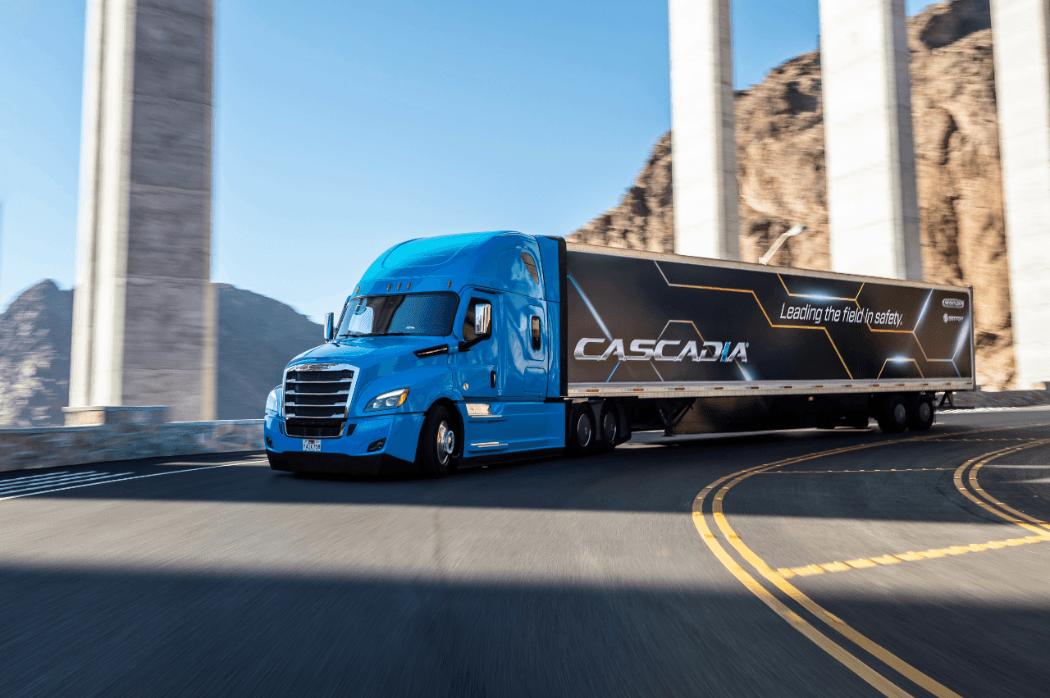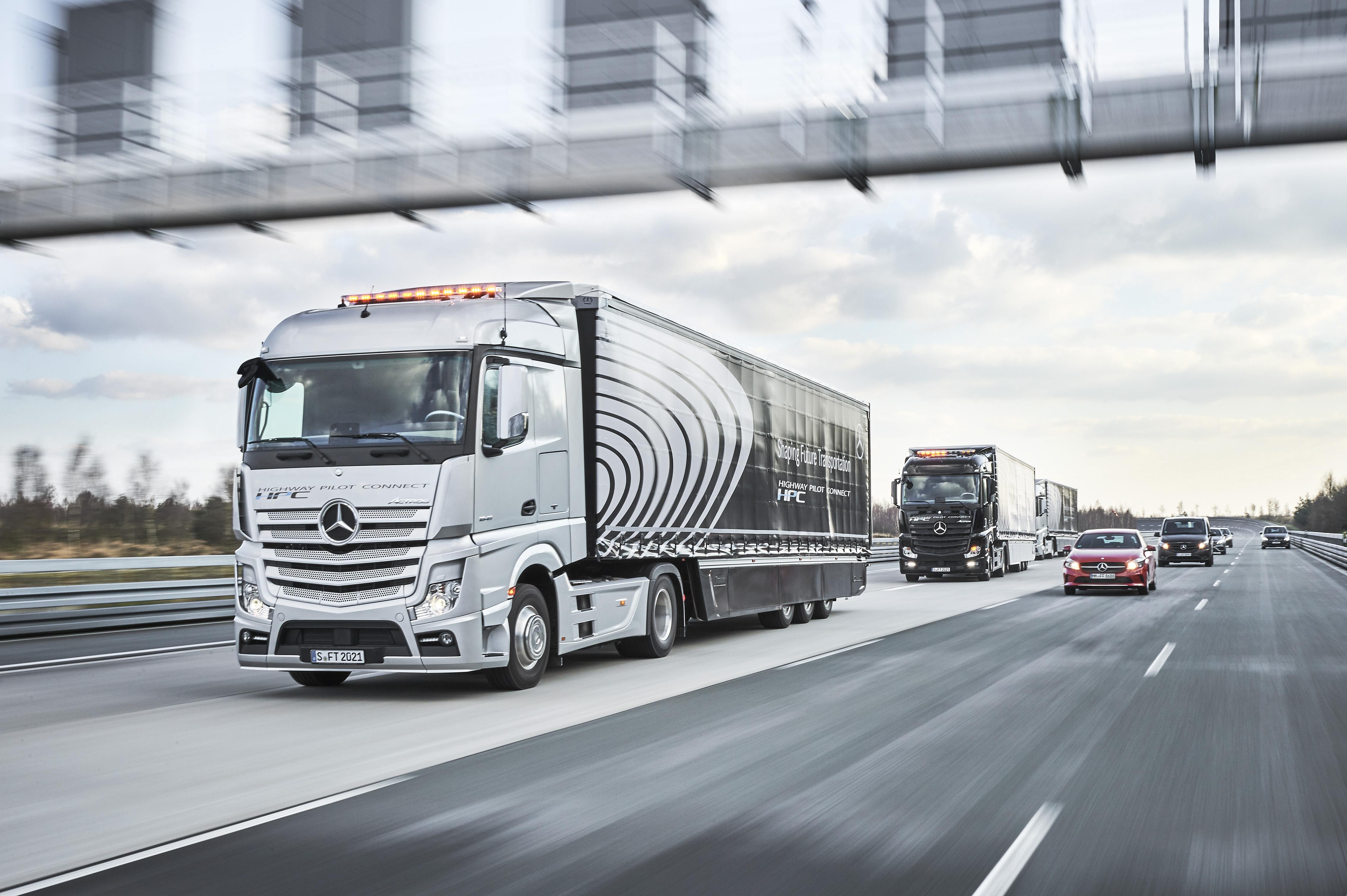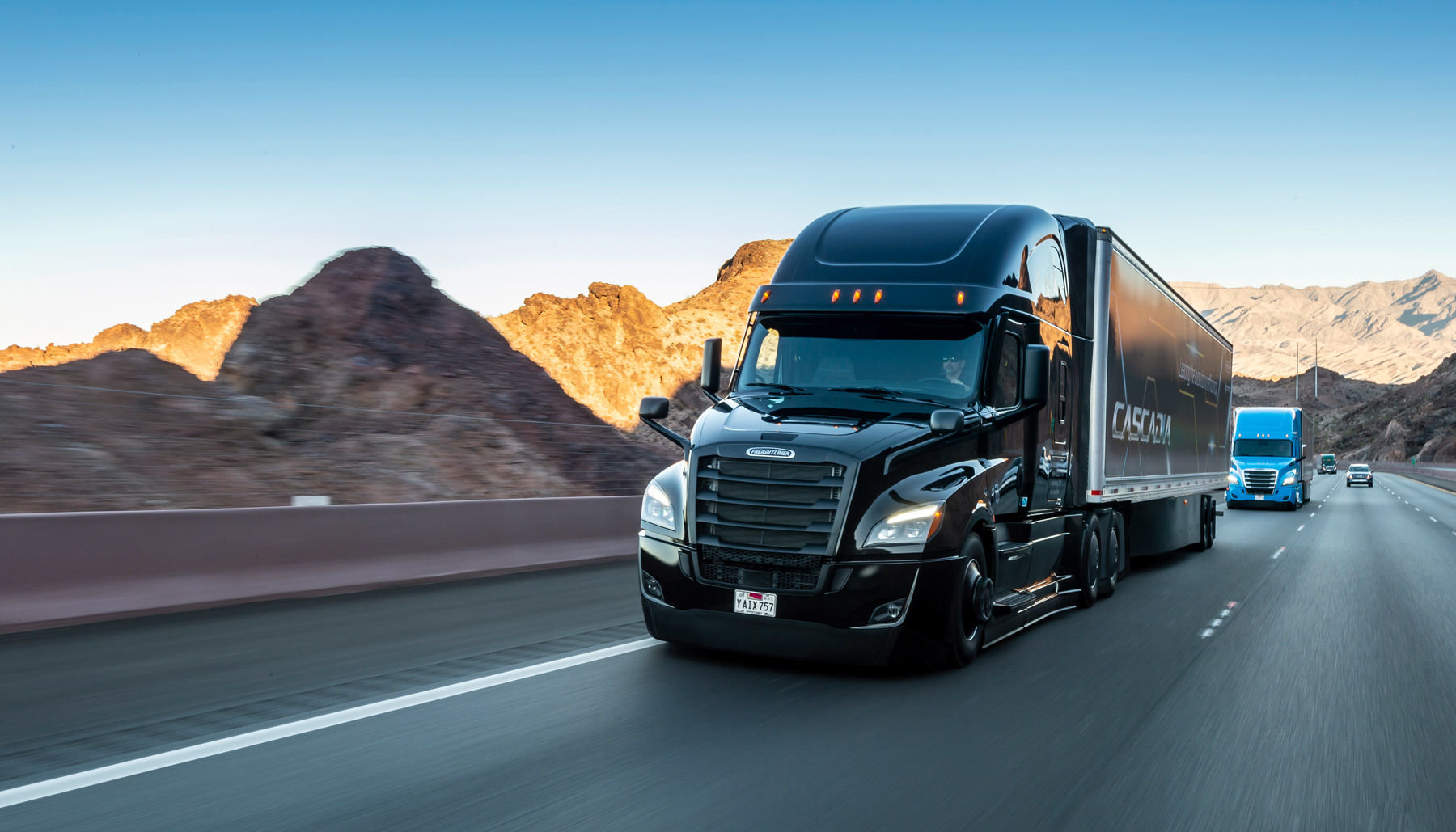Daimler Trucks plans to focus its attention on automated driving, and as a result plans to pause testing of truck platooning, the company announced at the recent 2019 Consumer Electronics Show (CES) in Las Vegas, Nevada.
In reassessing its work on truck platooning — a practice the company has tested for several years and many thousand miles in the U.S. — the German truck maker said test results have shown that fuel savings even in perfect platooning conditions are less than expected, adding those savings further diminish when the platoon disconnects and the trucks must accelerate to reconnect.
No Business for Platooning
Daimler Truck and Bus boss Martin Daum said analysis currently shows no business case for platooning in U.S. long-haul applications with new, highly aerodynamic trucks.
“The technology we would have to put in does not quantify the savings,” Daum said.
The company plans to reroute those resources and invest around $570 million over the coming years — creating more than 200 new jobs — in a global push to bring highly automated trucks (SAE level 4) to the road within the next decade.
Enjoying our insights?
Subscribe to our newsletter to keep up with the latest industry trends and developments.
Stay InformedCascadia Level 2 Automation
Daimler Trucks North America recently rolled out an updated Cascadia capable of SAE level 2 autonomous driving, enabled mostly through the truck’s Detroit Connect and Detroit Assurance platforms.
Level 2 automation means the truck can accelerate, decelerate and steer independently. Level 4, or highly automated driving, is characterized as automated travel in defined areas “and between defined hubs without any expectation of the system that a user will respond to a request to intervene.’’
With Level 2-capable trucks ready to roll off the assembly line later this year, the company’s focus now shifts to level 4 autonomy, Daum said.
Level 4 Autonomy
Just three years ago, Daum was skeptical of autonomous trucking, but said the company has learned a lot in the months since, shifting his optimism for Level 4 driving capabilities.
“Level 4 trucks will be a must some time in the future,” he said.
Level 4 is the natural next step after Level 2 for commercial trucking because it increases efficiency and productivity for customers and cuts costs-per-mile significantly, Daum said.
He said the truck maker plans to skip level 3 (conditionally automated driving) because it “does not offer truck customers a substantial advantage compared to the current situation as there are no corresponding benefits to compensate for the technology costs.”
Highly automated trucks will improve safety because the systems are never tired, Daum said.
“They never have a bad day. We feel obligated to innovate,’’ he said. “We build to provide solutions. Automated trucks are fascinating pieces of technology and promise a lot of benefits for the future. The benefits of the highly automated truck are significant, so we have to tackle that. It’s the only way, in our opinion, to handle the ever-growing volume of freight.’’
About Daimler Trucks North America
Daimler Trucks North America LLC, headquartered in Portland, Oregon, is the leading heavy-duty truck manufacturer in North America. Daimler Trucks North America produces and markets commercial vehicles under the Freightliner, Western Star and Thomas Built Buses nameplates. Daimler Trucks North America is a Daimler company, the world’s leading commercial vehicle manufacturer.
























